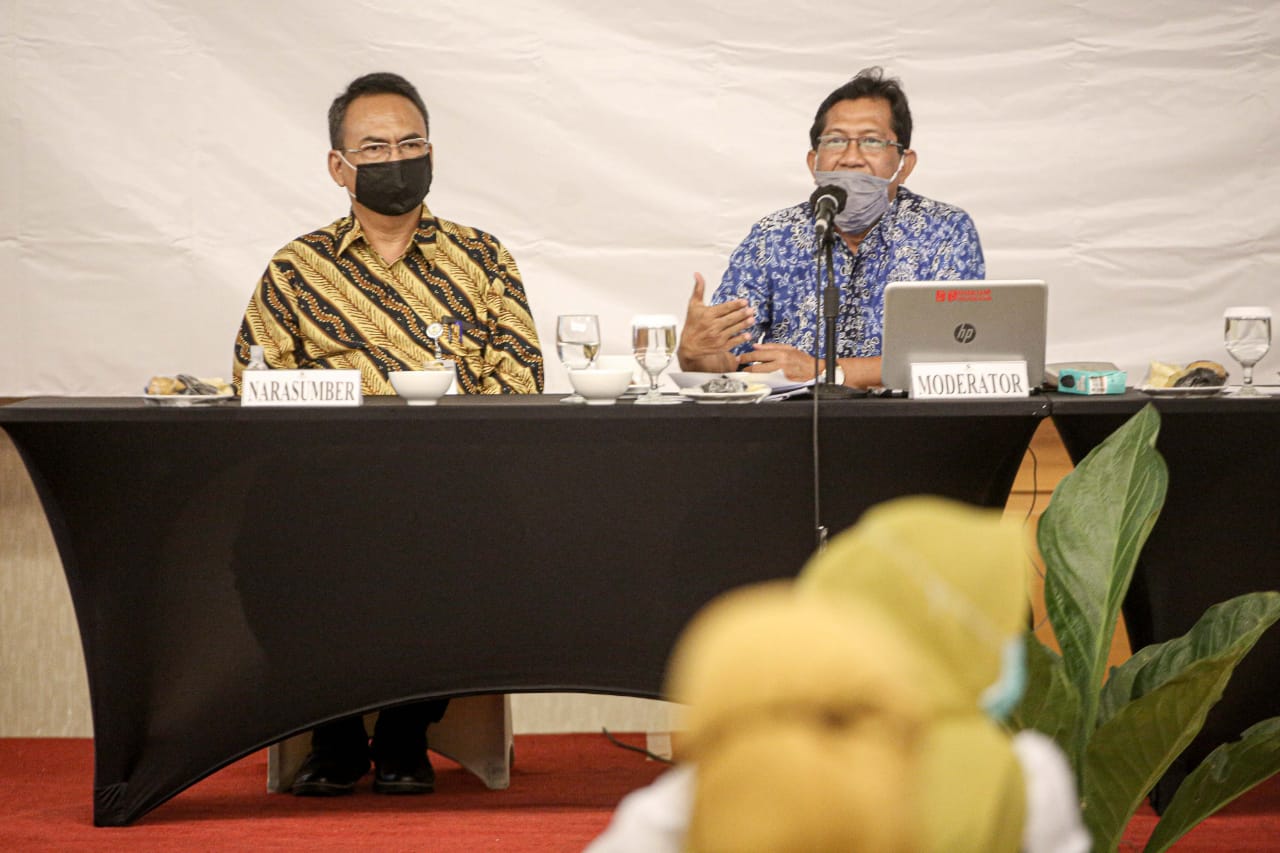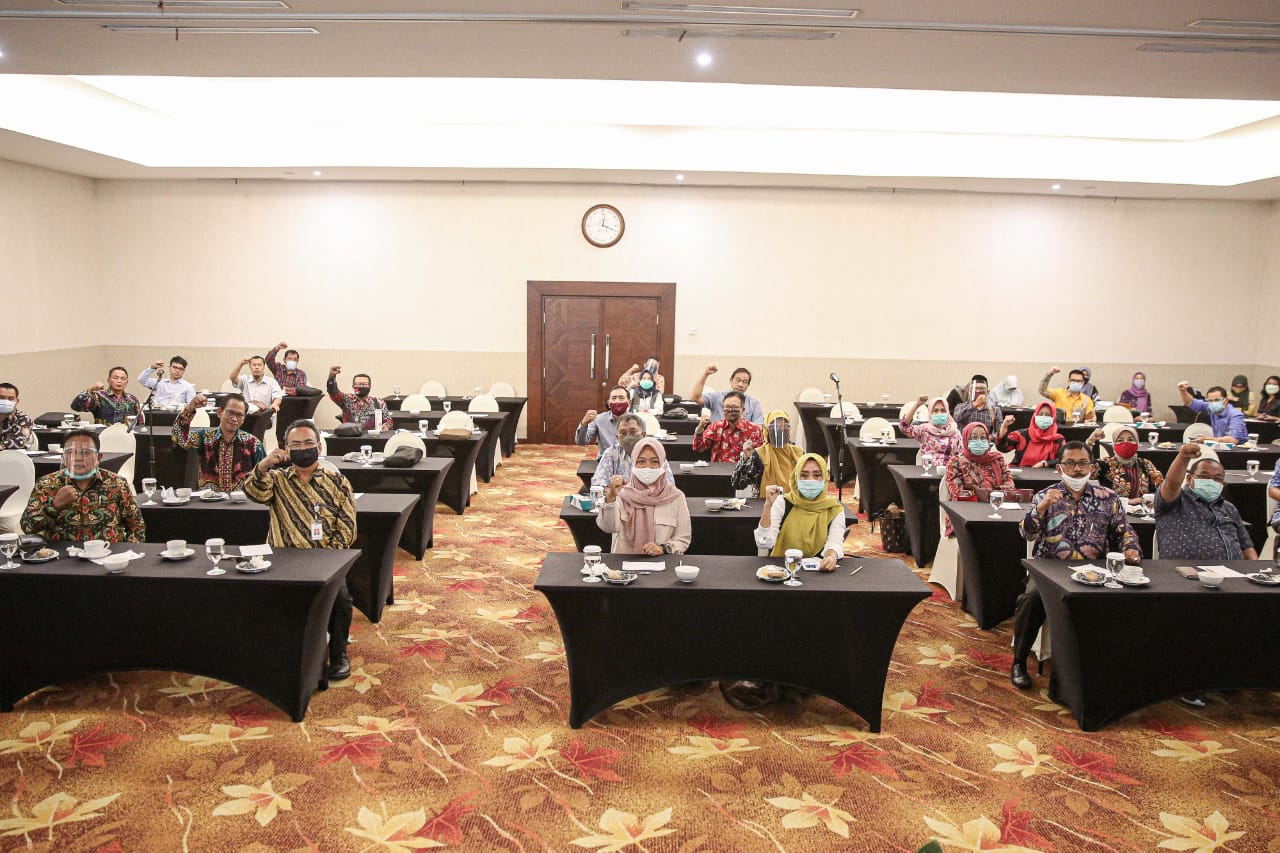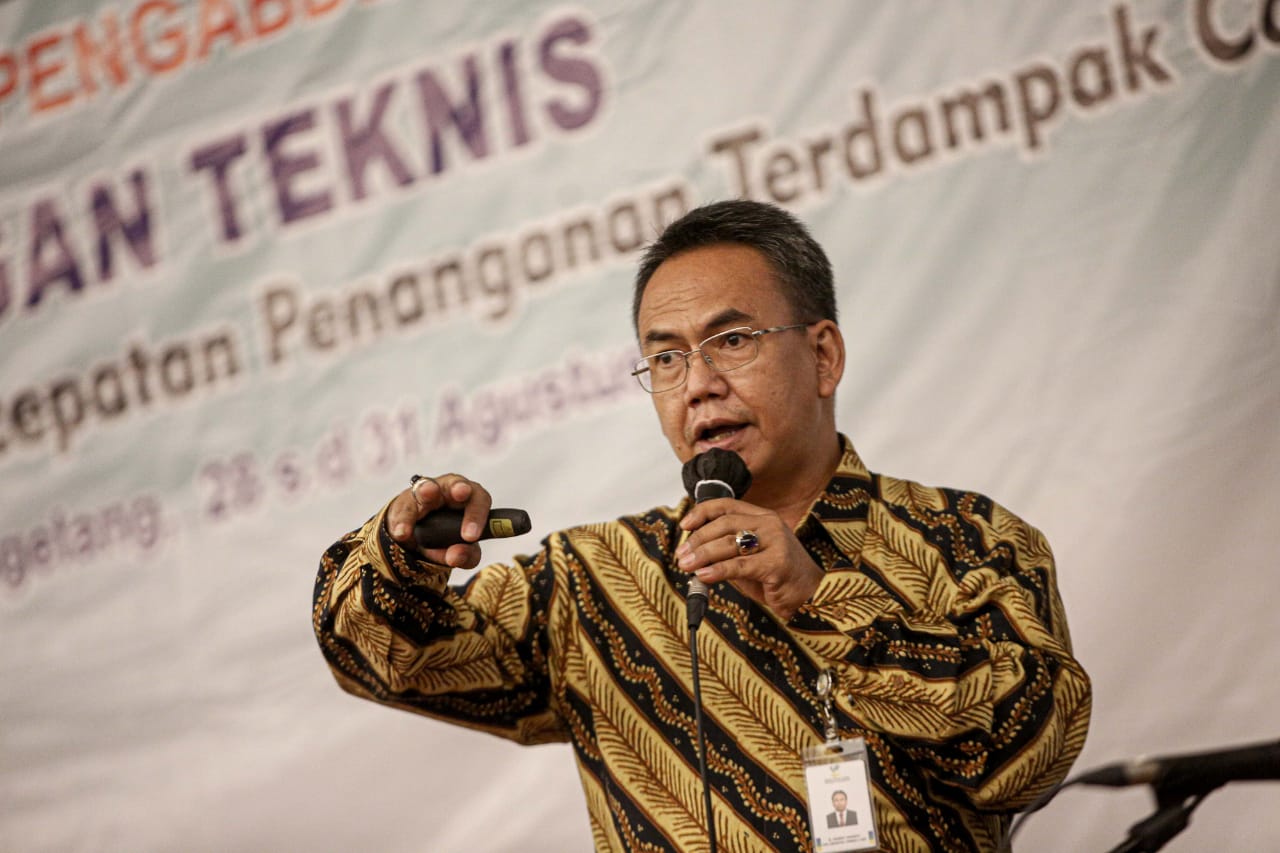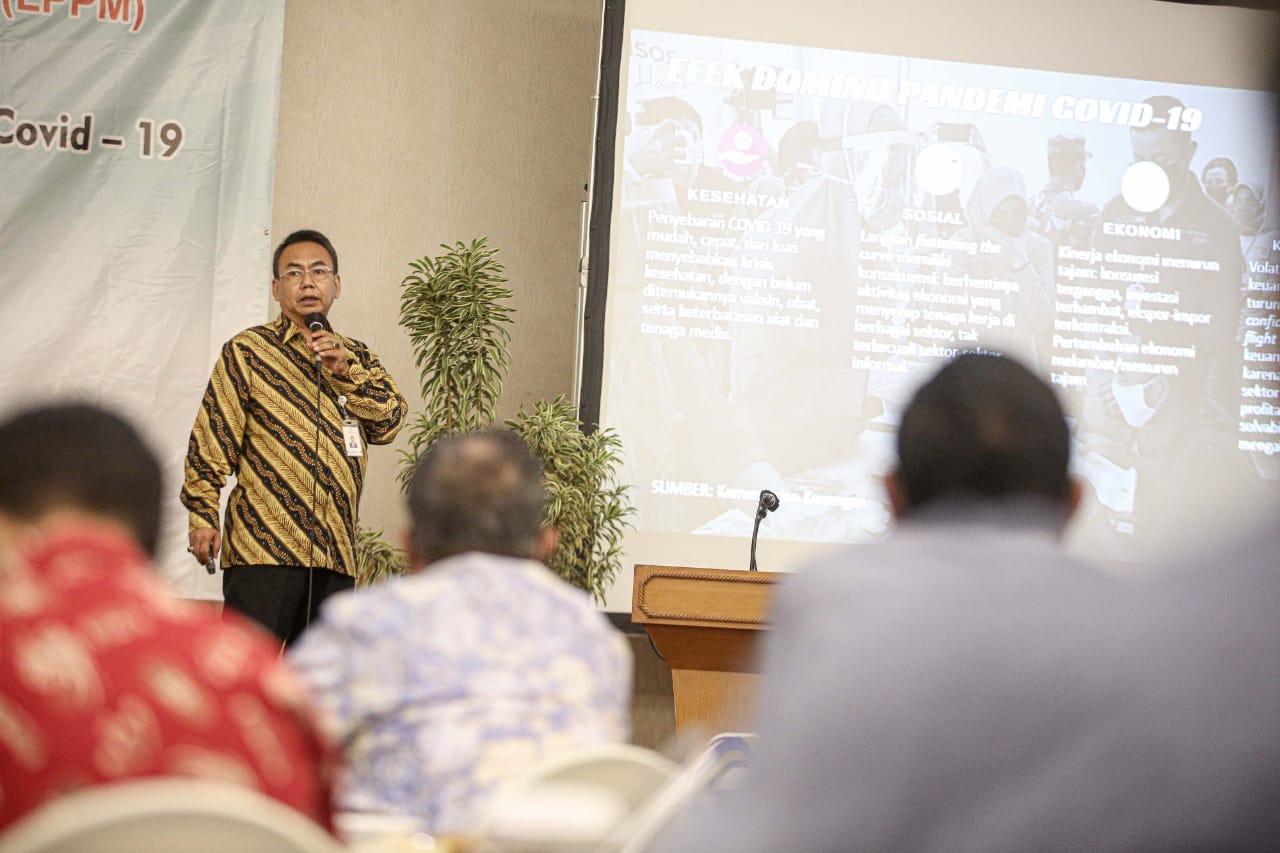MAGELANG (August 29, 2020) - The Indonesian Minister of Social Affairs, Juliari P. Batubara mobilized all his staff to work hand in hand to create a Social Safety Net (JPS) for residents affected by COVID-19. This was conveyed by the Director General of Social Rehabilitation, Harry Hikmat in his presentation while representing the Minister of Social Affairs at the Technical Guidance activity for Strengthening the Role of the DPRD in Accelerating Handling Affected by COVID-19.
In his presentation, Harry said that during the COVID-19 pandemic, Indonesia's economic growth was certain to experience contraction. Several strategies were instructed by the President of the Republic of Indonesia. Joko Widodo to the Ministry of Social Affairs for the implementing of social safety net.
This social safety net serves to protect the welfare of the poor and vulnerable, maintain people's purchasing power and meet the basic needs of the poor and vulnerable.
The Ministry of Social Affairs since April 2020 has launched regular social assistance such as 36.99 trillion of the Family Hope Program (PKH) and 43.6 trillion of Non-Cash Food Assistance Program (BPNT). In addition, he is also entrusted with managing the Presidential Special Assistance for the Greater Jakarta area of 6.8 trillion and non-Jabodetabek of 32.4 trillion.
Regular social assistance consisting of the PKH and BPNT programs underwent a change in the distribution scheme during the pandemic. Initially, the distribution of PKH per 3 months became per 1 month with a target of 10 Million Beneficiary Families (KPM).
Likewise with BPNT which experienced an expansion of targets during the pandemic. From 15.2 million KPM to 20 million KPM. In addition, the social assistance index increased from Rp. 150.000 per month to Rp. 200.000 per month.
The Ministry of Social Affairs is also trusted by the President of the Republic of Indonesia, Joko Widodo, to manage the Presidential Special Assistance provided in the form of basic food assistance for the Greater Jakarta area and Cash Social Assistance for non-Jabodetabek areas.
The Jabodetabek Special Social Assistance is in the form of basic necessities that are given to 1.3 million heads of families (KK) in DKI Jakarta and 600 thousand families in Bodetabek. The aid index is Rp. 600.000 consists of rice, cooking oil, sardines, corned beef, tea bags, sweet soy sauce, bottled chili sauce, instant noodles, bath soap and UHT milk.
It is different from BST which is given for non Jabodetabek areas. BST is given in the form of cash transfer of Rp. 600.000 through the Association of State Banks (BNI, BRI, Mandiri and BTN) or PT Pos Indonesia.
Some of these social assistance schemes are managed by the Directorate General of Social Protection and Security and the Directorate General of Poverty Handling. The data on recipients of this assistance comes from the Social Welfare Integrated Data (DTKS) of the Ministry of Social Affairs of the Republic of Indonesia.
Harry revealed that apart from regular and special social assistance, there are other segments that also need the State's attention, namely displaced people affected by COVID-19. They are residents who have been laid off, who have lost their homes because they cannot pay their rent, street children, beggars and scavengers who still carry out activities in public spaces during the Large-Scale Social Restrictions (PSBB).
Most of these displaced people are not included in the social assistance recipients, because most of them are migrants in DKI Jakarta and live in locations unregistered such as under toll roads, on the edge of railroad tracks to the coast.
The Directorate General of Social Rehabilitation was instructed by the Minister of Social Affairs to handle displaced residents due to the COVID-19 pandemic. The Directorate General of Social Rehabilitation has responsively created a scheme for Handling Displaced People Affected by COVID-19 (PWTC) with 3 approaches. namely the family or community-based approach through the Social Welfare Institution (LKS), based on temporary shelter(GOR), and based on the Social Rehabilitation Center.
Initially, the Ministry of Social Affairs through the Directorate General of Social Rehabilitation collaborated with the DKI Jakarta Provincial Government to provide a Sports Center (GOR) to temporarily accommodate displaced residents who were caught in disciplinary operations during the implementation of the PSBB. This is called the temporary shelter approach.
However, this effort will have a better impact when preventing residents from going down to public spaces and preventing accumulation in the GOR. So the Ministry of Social Affairs cooperates with LKS to provide family strengthening, Dissemination of the dangers of COVID-19, education and opening independent kitchens and helping distribute social assistance to communities of beggars, scavengers and street children.
Harry reported that since April 2020 until now a total of 6,212 people have been treated both at the GOR, LKS and at the Social Rehabilitation Center. A total of 71, 252 Aid Packages have also been distributed to displaced people.
In the near future, the Ministry of Social Affairs will also distribute additional social assistance which will be managed by the Directorate General of Social Empowerment in the form of rice for 10 million KPM PKH and in the form of cash assistance for 9 million KPM BPNT.
At the end of his presentation, Harry conveyed the Minister of Social Affairs’ message that the Ministry of Social Affairs did not act like a superman, but a superteam.
This activity, which was organized by the University of Stikubank Semarang, was attended by 45 members of the DPRD for the Special Region of Yogyakarta.
 English
English
 Bahasa
Bahasa




